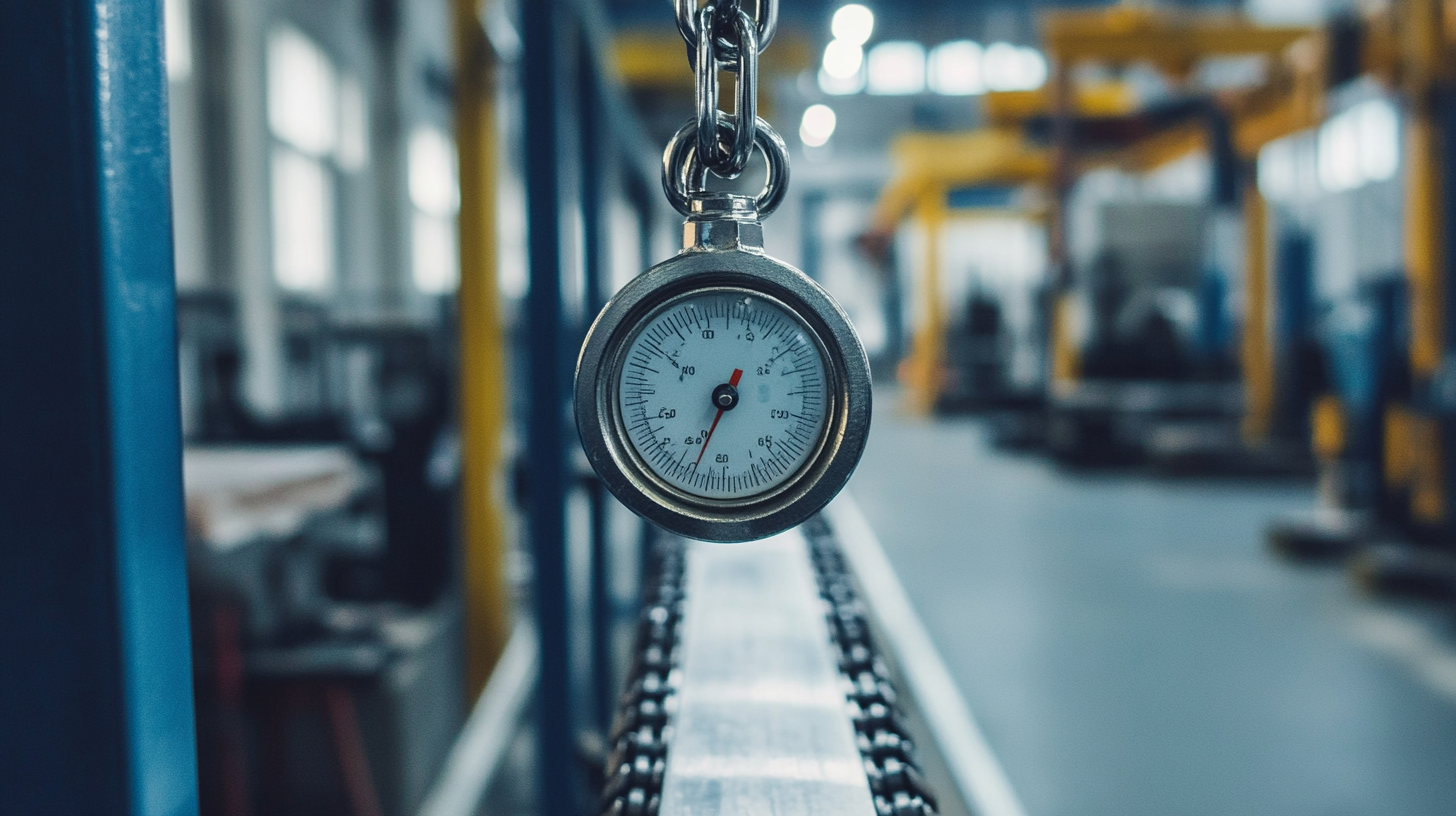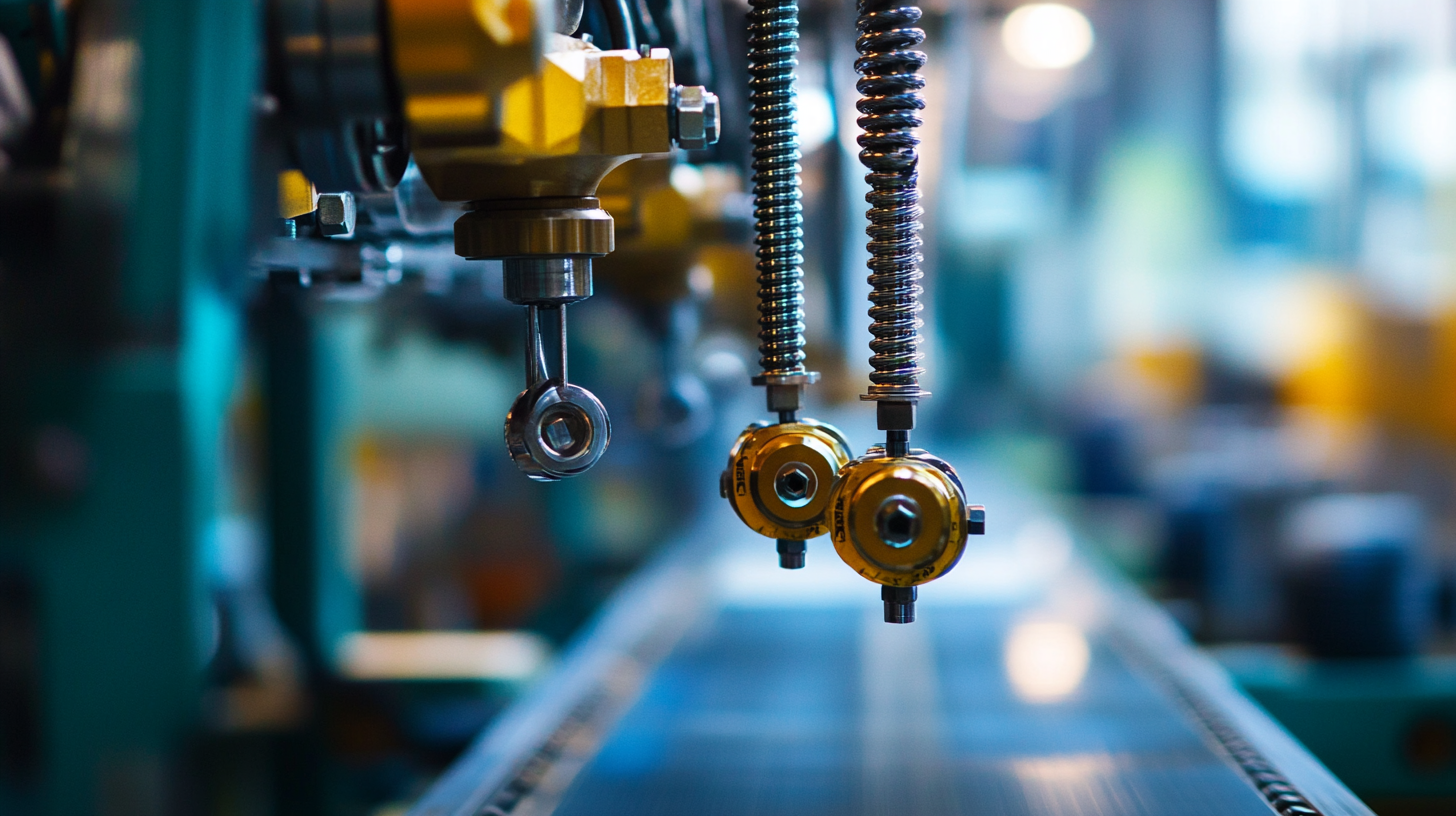 sales@loadcellsensor.com
sales@loadcellsensor.com

Unlocking Success with Thin Load Cells Effective Ways to Identify Quality Suppliers
In the rapidly evolving field of measurement technology, the demand for precision and reliability has never been greater, particularly when it comes to load cells. According to a recent industry report by MarketsandMarkets, the global load cell market is projected to grow from $3.1 billion in 2021 to $4.5 billion by 2026, at a compound annual growth rate (CAGR) of 7.6%. This growth can be largely attributed to the increased adoption of Thin Load Cells, which are gaining traction across various sectors including industrial automation, aerospace, and medical devices. These compact sensors are known for their accuracy in measuring weight and force, making them essential in applications where space and precision are paramount.
As the market expands, identifying quality suppliers of Thin Load Cells has become a critical concern for manufacturers and engineers aiming to optimize their operations. A recent survey conducted by the Load Cell Manufacturers Association revealed that 70% of industry professionals cite supplier reliability as a crucial factor in their purchasing decisions. With so many options available, it is imperative to understand the characteristics that define high-quality Thin Load Cells and the benchmarks for selecting trustworthy suppliers. This blog will delve into effective strategies for discerning reliable partners in this competitive market, ensuring that businesses can harness the full potential of Thin Load Cells for their innovative projects.

The Importance of Thin Load Cells in Precision Measurement
Thin load cells play a crucial role in precision measurement across various applications. Their ability to accurately record weight changes with minimal distortion makes them essential in industries like agriculture, electronics, and food processing. The advancements in load cell technology have led to designs that are not only efficient but also compact, allowing for integration into devices where space is at a premium. For instance, in precision agriculture, yield monitors utilize thin load cells to deliver real-time data, enhancing decision-making for farmers and improving crop management practices. Recent studies highlight the significance of understanding the dielectric properties of materials, such as quantum dots, in enhancing the performance of thin load cells. By investigating factors like the size of quantum dots and the resulting dielectric constants, engineers can better predict the behavior of these cells under different conditions. This understanding can drive innovation in load cell applications, leading to more reliable and accurate measurement systems. Moreover, the design of load cell-based balance systems continues to evolve, with recent developments showcasing the integration of advanced measurement techniques. For instance, utilizing a simple balance apparatus with multiple load cells can significantly improve the precision of lift and drag measurements. As industries increasingly demand enhanced accuracy, the importance of high-quality thin load cells cannot be overstated, making it essential for businesses to identify and partner with quality suppliers in the market.

Key Characteristics to Look for in Quality Load Cell Suppliers
When it comes to selecting quality suppliers for thin load cells, there are several key characteristics that can influence your decision. A reliable supplier should have a solid reputation in the industry. This can be assessed through customer reviews, testimonials, and case studies that showcase their past performance and reliability. Look for suppliers who have been in the market for a significant amount of time, as experience often correlates with expertise and trustworthiness.
Another critical characteristic is the supplier's ability to provide comprehensive customer support. A quality supplier should not only assist you in the initial selection process but also offer ongoing technical support and guidance as needed. This includes having knowledgeable staff available to address your questions, providing technical documentation, and offering training when necessary. A supplier who prioritizes customer service can help ensure that your applications run smoothly and efficiently.
Additionally, consider the range of products and customization options a supplier offers. Quality load cell suppliers should provide a variety of options, including different sizes and specifications to suit your specific needs. The ability to customize load cells for unique applications is essential, as it demonstrates a supplier's flexibility and commitment to meeting customer demands. By focusing on these characteristics, you can identify suppliers that are positioned to support your business effectively and facilitate your success with thin load cells.

Evaluating Supplier Reputation and Customer Feedback
Evaluating supplier reputation and customer feedback is crucial in today’s competitive landscape, especially for industries reliant on precision instruments like thin load cells. Businesses should prioritize thorough research into potential suppliers, focusing on their track record and the testimonials of past clients. Online platforms that aggregate customer feedback can provide invaluable insights into a supplier’s reliability and quality. Positive reviews and a solid reputation often indicate that a supplier values customer satisfaction, which is integral when choosing partners for critical components.
Additionally, as the importance of sustainability in supply chains grows, evaluating suppliers based on their green practices can enhance your purchasing decisions. According to recent literature, the role of green supplier evaluation and selection is becoming essential in supply chain management. Companies are increasingly looking for suppliers who not only meet technical specifications but also demonstrate a commitment to environmental responsibility. This dual focus on quality and sustainability can not only enhance product performance but also bolster your brand’s reputation among environmentally conscious consumers.
In the realm of sales and customer relations, providing prospective clients with comprehensive information about suppliers fosters better decision-making. When potential buyers have access to detailed insights regarding supplier performance and customer satisfaction, they are more likely to choose partners that align with their values and needs. Ultimately, the interplay between supplier reputation, customer feedback, and sustainability practices plays a significant role in shaping successful business partnerships in the modern marketplace.

Strategies for Building Long-Term Relationships with Suppliers
Building long-term relationships with suppliers is essential for any business looking to thrive in today's competitive market. When it comes to sourcing thin load cells, finding quality suppliers is just the beginning. The focus should shift towards nurturing these relationships through strategic engagement and communication. Establishing a clear understanding of your suppliers' capabilities and expectations can foster a sense of partnership that benefits both parties.
One effective strategy is to prioritize open and honest communication. Regular check-ins and feedback sessions allow suppliers to voice their concerns and share insights on improving product quality and delivery times. This transparency not only strengthens the bond but also encourages innovation and collaboration, leading to better outcomes for both the supplier and the business. Additionally, involving suppliers in the decision-making process can enhance their commitment, making them feel like integral parts of your organization's success.
Investing in supplier development is another crucial tactic for building long-term relationships. Providing training opportunities or sharing industry best practices helps suppliers upgrade their processes and technologies, aligning them more closely with your company's standards. This mutual growth fosters loyalty and creates a more resilient supply chain. By focusing on these strategies, businesses can cultivate lasting partnerships with their suppliers, ensuring consistent quality and reliability in the products they source.
Cost vs. Quality: Finding the Right Balance in Load Cell Sourcing
When sourcing thin load cells, understanding the balance between cost and quality is crucial for achieving long-term success. Load cells are essential components in various applications, from industrial weighing systems to medical devices. While it may be tempting to go for the cheapest option, it is vital to consider the long-term implications of this choice. Low-cost load cells may save money upfront but could lead to higher maintenance costs, increased downtime, or inaccurate readings, ultimately affecting the overall efficiency and reliability of your operations.
Quality should always be a priority, especially in applications where precision is vital. A reliable supplier can provide load cells that adhere to stringent standards, ensuring accuracy and consistency over time. These suppliers often invest in robust testing and quality control processes, which might reflect a higher initial cost but pays off through enhanced performance and durability. When evaluating suppliers, companies should ask for certifications and performance data to understand better the potential return on investment.
Striking the right balance between cost and quality requires careful assessment of your specific needs and the context in which the load cells will be used. Identify key performance indicators that matter most to your application. This strategic approach will help in making informed decisions, allowing businesses to select load cells that fulfill both budgetary constraints and quality requirements, positioning them for success in their respective markets.


